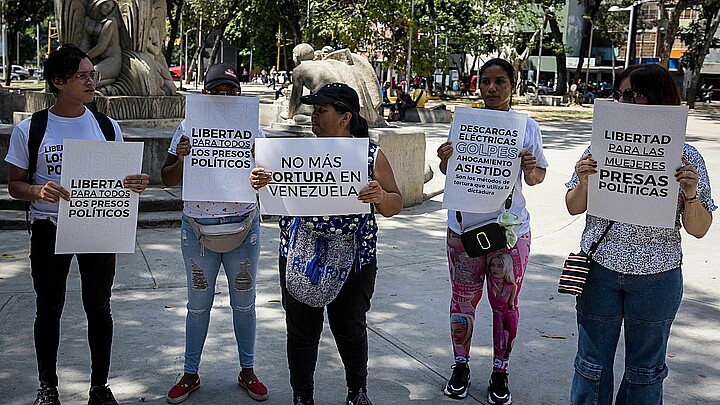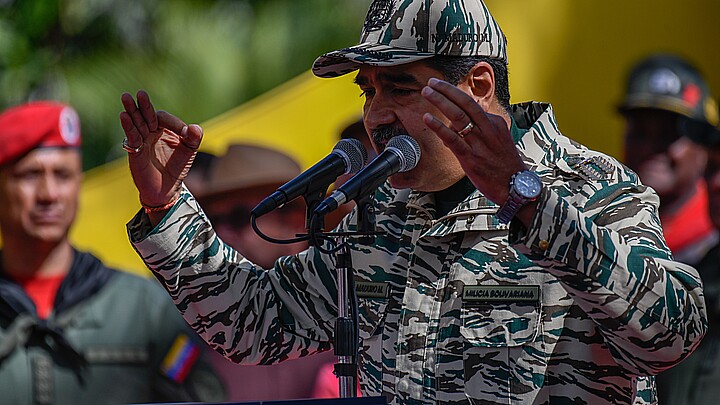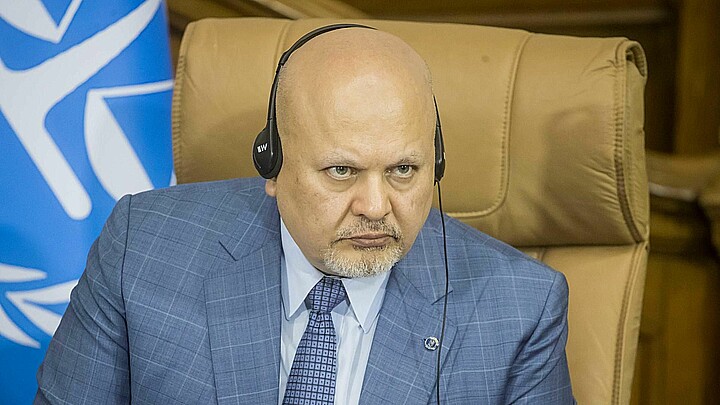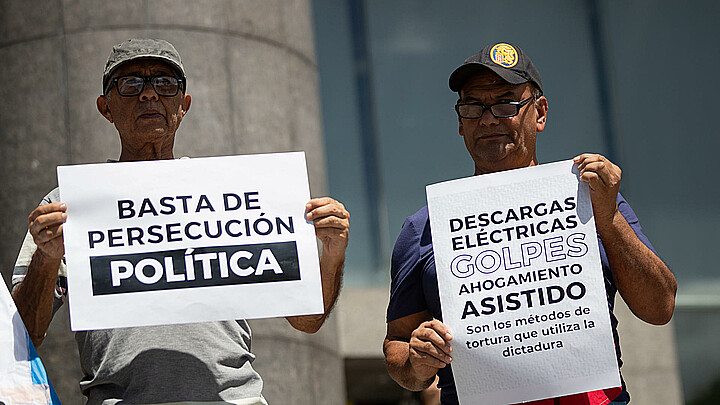Human Rights
Maduro wages war on media, arrests reporters and cancels passports of journalists and human rights defenders
The Maduro regime has begun waging a quiet war against journalists and human rights defenders, launching a sweep of arrests and expulsions while cancelling the passports of Venezuelan democracy activists and reporters, according to reports collected on location by ADN America.

August 11, 2024 4:30pm
Updated: August 12, 2024 9:01am
The Maduro regime has begun waging a quiet war against journalists and human rights defenders, launching a sweep of arrests and expulsions while cancelling the passports of Venezuelan democracy activists and reporters, according to reports collected on location by ADN America.
The Maduro regime has arrested at least nine journalists and expelled another 14 before and after the July 28 elections, according to a recent Voice of America report that cites media associations and freedom of speech organizations.
Journalists arrested, detained, expelled, injured and intimidated
Five of the journalists arrested were detained last week on charges related to terrorism while others have been detained, expelled, injured and intimidated.
“The Press and Society Institute (IPYS) has so far documented at least 79 violations of press freedom between July 29 — the day after the vote — and August 4. Most cases were linked to coverage of the election or protests,” Voice of America reported. “In the most serious incident, a journalist was shot and injured in Aragua state. Elsewhere, spokespersons for national and local governments are reported to have harassed journalists.”
Meanwhile, the Maduro regime has also engaged in a pattern of intimidation against Venezuelan human rights defenders and journalists by cancelling their passports so they are effectively prevented from leaving the country, a tactic commonly used by the Castro military dictatorship.
The sweep of repression against activists and journalists came after the Maduro controlled National Electoral Council declared dictator Nicolás Maduro the winner of the July 28 elections when outside election observers, and the global community including the U.S. and several major Latin American and European countries have said vote tallies suggest otherwise.
Human rights organizations say at least 24 died during the anti-Maduro protests, and more than 2,200 were arrested by communist regime officials, according to Maduro law enforcement agents.
ADN America reported last week that Maduro also asked Venezuelans to delete WhatsApp from their mobile phones and electronic devices in hopes he could create a media blackout to block stories published by the independent and free press that are reporting the pro-democracy opposition coalition won the election.
His attorney general, Tarek William Saab, also announced possible charges of insurrection against opposition leader Maria Corina Machado and presidential candidate Edmundo González Urrutia.
Journalists’ and activists’ passports cancelled
In a move that mirrors the anti-activist techniques of the Castro military dictatorship in Cuba, the Maduro regime suddenly cancelled the passports of dozens of journalists and human rights defenders, according to a report released by the Espacio Público NGO.
While Venezuelan police authorities continue to arrest hundreds of people for participating in protests against the fraudulent elections of July 28, the organization says it has documented at least 16 cases of passport annulment of journalists and human rights activists.
Espacio Público Director Carlos Correa told CNN that this is not a new practice in Venezuela, but that, compared to other times, there are a greater number of complaints, adding that the organization is trying to determine if the passport cancellations were the beginning of a pattern of “massive blockades” for people to leave or return to the communist country.
In most cases, those affected who are inside Venezuela asked both the organization and the National Union of Press Workers to protect their identity to avoid major consequences.
One of the most recent cases is that of Yendri Omar Velázquez, a Venezuelan activist for the rights of the LGBT community, detained last week at the Maiquetía International Airport and, hours later, released.
It was later reported that Velásquez's passport was cancelled.
The NGO Peace Laboratory, which keeps a record of similar complaints, says that the figure is 25, because there is a greater number of complainants from abroad who have been locked out of returning. The Cuban military dictatorship has cancelled passports or blocked travel for activists and journalists both in and out of the island, sometimes leaving people stranded on layovers in foreign airports in between their travel.
Venezuelan journalist Jefferson Díaz, who lives in Ecuador, told CNN's Conclusions program this Wednesday that his passport and that of his wife and children were annulled, even though they had not expired.
Díaz stated that he did not know the reason for the annulment, but that it could be related to his activism on immigration issues.
Luis Magallanes, the coordinator of the Ecuadorian Voluntad Popular (Popular Will) opposition party also told CNN that he had recently issued his passport and that it now appears canceled on the portal of the Administrative Service of Migration and Immigration (SAIME).
The Venezuelan passport is the most expensive in Latin America, followed by the Uruguayan, which is around $123. The cheapest are those from Peru, which only cost 26 dollars, that from El Salvador, 40, and that from Argentina, 42.











